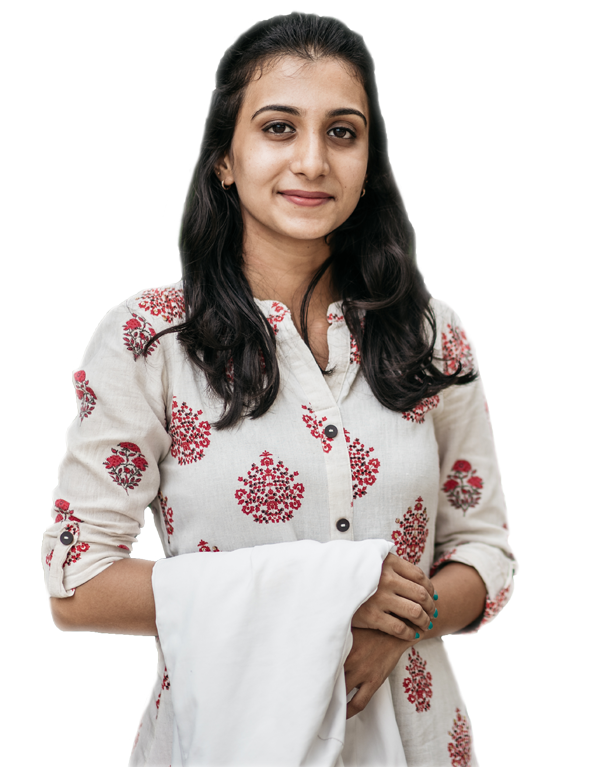
Eligibility
Pass in 10+2, with 50% marks in Physics, Chemistry and Biology/Biotechnology with English as one of the languages of study. Candidate should be NEET-UG qualified. The candidate should have completed 17 years of age as on 31st December of the year of admission.
Admission Procedure
In addition to the basic eligibility criteria mentioned above, students seeking admission to MBBS will be required to qualify in the National Eligibility cum Entrance Test, NEET-UG which will be conducted by the National Testing Agency generally in May, every year. The responsibility of the NTA is limited to the conduction of Entrance Test, declaration of result and providing the All India Rank to the Directorate General of Health Services (DGHS), New Delhi for counselling of 15% All India Quota Seats, 100% seats in Deemed Universities and providing the result to the State counselling authorities and admitting institutions.
Indian Nationals, Non Resident Indians (NRIs), Overseas Citizen of India (OCIs), Persons of Indian Origin (PIOs) and Foreign Nationals are eligible to appear for NEET-UG. NEET qualification is a pre-requisite for admission to MBBS.
The application form for NEET-UG can be submitted online through the website www.ntaneet.nic.in on notification. Students are advised to carefully read the Information Bulletin and keep the correct details ready, before submission of the form. Kindly visit https://exams.nta.ac.in/NEET/ after announcement of NEET-UG results and obtain the details by clicking “UG Medical Counselling - Deemed/Central Universities”.
Admission to both General and NRI category seats in MBBS is based on inter-se merit in NEET-UG.
The fee structure for MBBS (General & NRI categories) is made available on our website www.nitte.edu.in
Documents required for admission to MBBS (Original + 3 attested copies)
- NEET-UG allotment letter
- NEET score card & rank letter
- 10th standard marks card
- 12th standard marks card
- Transfer certificate
- Conduct certificate
- Migration certificate
- Physical fitness certificate
- Blood group certificate
- Category certificate (If allotted under particular category)
- Aadhaar card copy of the student
- PAN card copy of the parent
- Photographs: Recent colour photo with white background, of resolution 300-600 dpi & size 35 mm x 45 mm (P.P size 5 Nos.) & size 20 mm x 25 mm (Stamp size 5 Nos.)
Additional documents for NRI candidates
- Passport copy of the parent
- Parent’s resident certificate issued by the Embassy of the country
- Employment certificate of the parent
- Income tax documents required as per the Income Tax Act, 1961
Additional documents for foreign nationals
- Valid foreign passport and valid visa for the period of study
- Valid residential permit in India
- AIDS-free certificate
- Equivalence certificate from the Association of Indian Universities, New Delhi
Commencement of Course
The MBBS course commences on the date prescribed by the Medical Council of India, generally during the first week of August.
For any information regarding the admissions,mail us at: info@nitte.edu.in

Program Outcomes
At the end of the program, graduates will be able to...
- PO1: Demonstrate knowledge of normal and abnormal human structure, function from a molecular, cellular, biologic, clinical, behavioural and social perspective.
- PO2 :Elicit and record a history, perform a physical examination and choose appropriate diagnostic tests relevant to disease identification, disease prevention and health promotion.
- PO3: Demonstrate ability to interpret available clinical and laboratory data and effective clinical problem solving, in order to generate differential diagnoses and develop individualized management plans.
- PO4: Prescribe and safely administer appropriate therapies based on the principles of rational drug therapy, scientific validity, evidence and cost effectiveness.
- PO5: Identify and refer patients who may require specialized or advanced tertiary care.
- PO6: Demonstrate knowledge of global and national health needs, health care policies, regulatory frameworks, economics and systems that influence health and well being.
- PO7: Function effectively as a health care team leader or member in primary and secondary health care settings.
- PO8: Communicate effectively and sensitively with patients, care-givers, colleagues and the public in a manner that will improve health care outcomes and patient satisfaction.
- PO9: Demonstrate ability to continue refining existing knowledge / skills, acquire new knowledge / skills and to select and pursue an appropriate career pathway that is professionally rewarding and personally fulfilling.
- PO10: Recognize and manage medico-legal, ethical and professional issues in medical practice.
- PO11: Demonstrate and practice integrity, responsibility, respect and selflessness.
Note
For program outcomes 1 to 5, the focus of learning will be on the following disorders and risk factors listed below
Conditions contributing significantly to mortality and morbidity in India and in the region
- Ischemic heart disease
- Chronic obstructive pulmonary disease
- Diarrhoeal diseases
- Lower respiratory infections
- Cerebrovascular disease
- Iron deficiency anemia
- Neoplasms
- Preterm birth
- Tuberculosis and HIV/AIDS
- Diabetes mellitus
- Sense organ diseases
- Injuries
- Depression and self-harm
- Conditions of regional importance including malaria, dengue and leptospirosis
Risk factors contributing significantly to disability-adjusted life years (DALYs) in India
- Child and maternal malnutrition
- Air pollution
- Dietary risks
- High systolic blood pressure
- High fasting plasma glucose
- Tobacco
- Unsafe water, sanitation, hand washing
- High total cholesterol
- High body-mass index
- Alcohol and drug use
Based on data from the Global Disease Burden Study.
Reference: Dandona L, Dandona R, Kumar GA, Shukla DK, Paul VK, Balakrishnan K, et al. Nations within a nation: variations in epidemiological transition across the states of India, 1990–2016 in the Global Burden of Disease Study. The Lancet. 2017 Dec 2;390(10111):2437–60.


